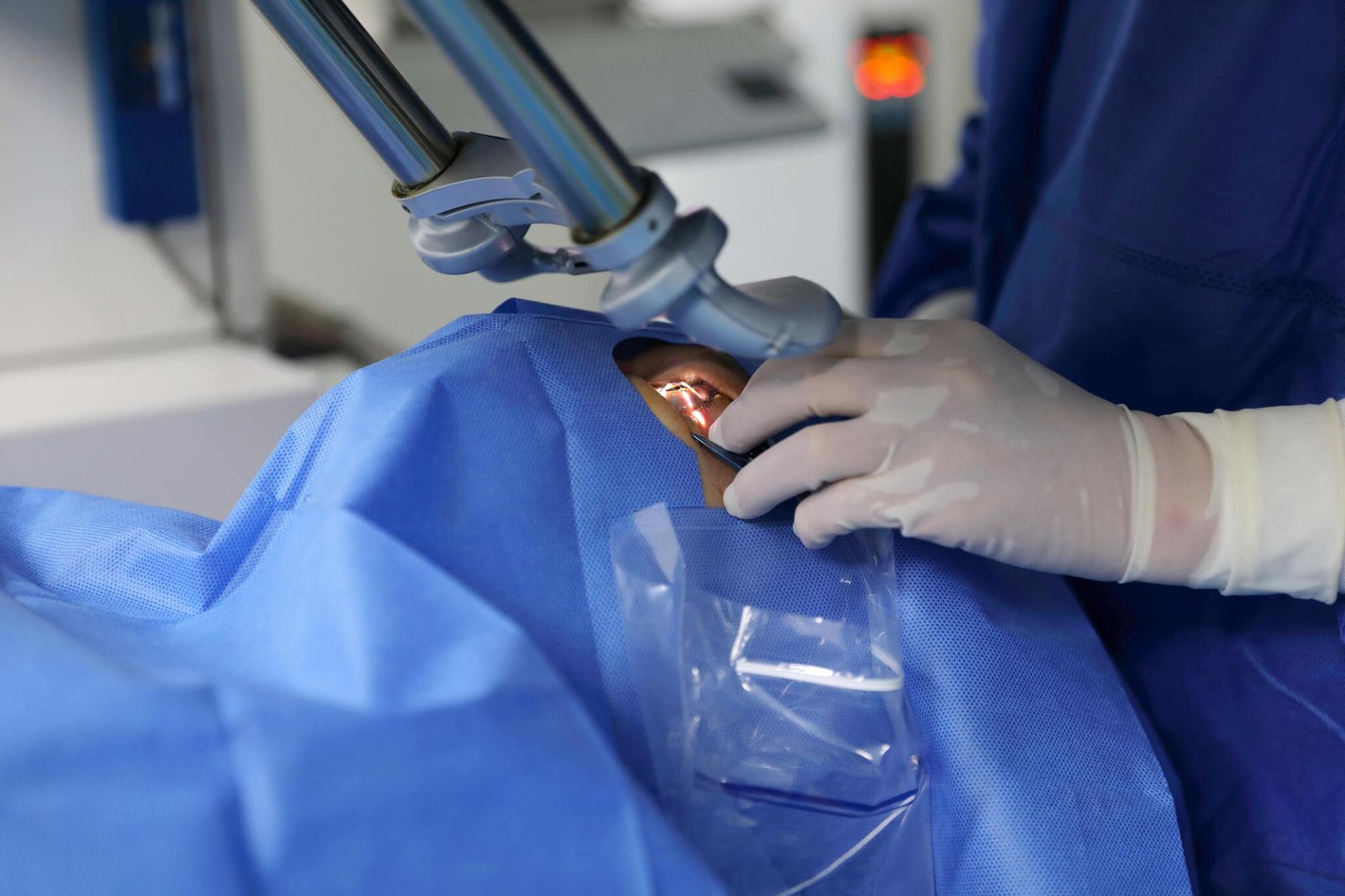LASIK eye surgery, a prevalent laser refractive procedure (LRS), offers a corrective alternative to glasses or contact lenses to those patients who don’t want to wear them. Laser Vision correction is done by removing ultrathin layers from the cornea and reshaping the cornea—the clear, dome-shaped front of the eye.
This adjustment corrects vision by ensuring light is properly focused onto the retina, addressing issues like Nearsightedness (Myopia), Farsightedness (Hypermetropia/Hyperopia), and Astigmatism that cause blurred vision.
We are well versed with Surface Ablation/TRANSPRK- without touch (Contoura/Samrtsurf/Smartpulse/Xyoptix HD), Femto LASIK/Blade-free LASIK ((Contoura/Samrtsurf/Smartpulse/Xyoptix HD) and latest buzz, Lenticule based surgery like SMILE/SMILE pro/SILK/CLEAR
The entire LASIK surgery process usually takes about a few minutes for both eyes, whereas the actual laser takes a few minutes to apply. Patients can expect to return to their normal activities within a few days, following their surgeon’s advice and attending follow-up appointments as recommended.
LASIK eye surgery significantly improves vision for many, reducing the need for glasses or contact lenses. However, being informed about its potential side effects and risks is crucial.
Post-operative instructions aim to prevent infection, emphasizing eye care, especially in the first three weeks.
LASIK surgery offers a transformative solution for individuals seeking to become glass or contact lens free. With a high success rate, minimal discomfort, and rapid recovery, it’s no wonder why LASIK has become the preferred choice for vision correction worldwide.
Happy and confident patient after surgery is our motto.
If you’re considering LASIK, consult with a qualified eye surgeon to explore how this advanced procedure can benefit you, paving the way to clearer, more vibrant vision.
